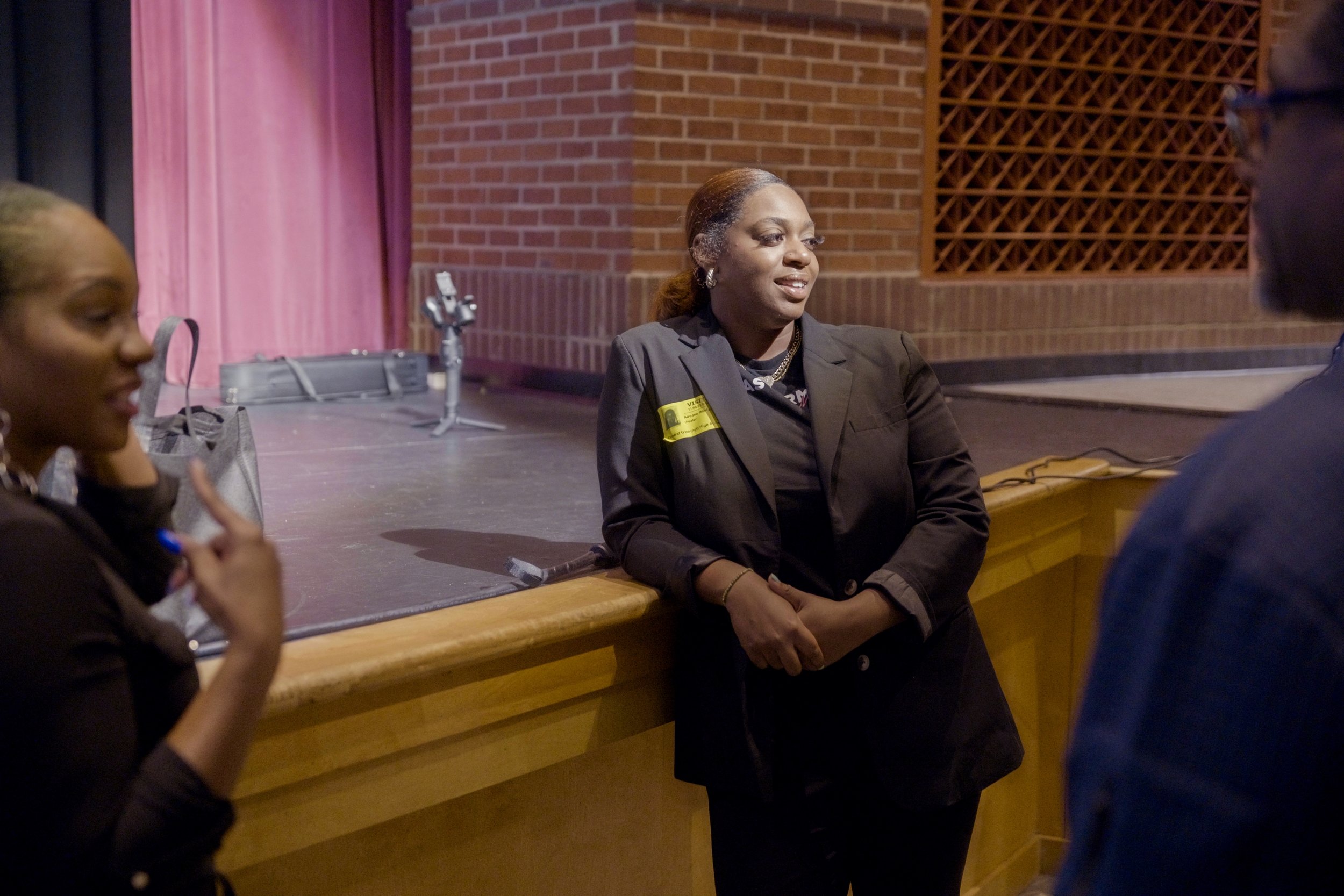
Professional
Developments
Super Teacher Bootcamp
Our Super Teacher Bootcamp is a comprehensive training program, uniquely tailored for early career educators. We offer a variety of resources to meet the evolving needs of the education sector.
This meticulously designed program is segmented into curated units and standards that align with specific lessons. Each lesson includes asynchronous courses with clearly defined learning targets and associated objectives.
Dive deeper into what our Bootcamp offers and discover how we can support the early career educator journey in your schools today!
Educators Supporting Other Educators.
Educators Supporting Other Educators.
We leverage conscious technology and social justice to address critical challenges in education.
Our approach aids schools, teachers, administrators, and district officials in tackling key issues related to the recruitment and retention of educators.
Through innovative solutions, we're committed to resolving these systemic challenges and enhancing the educational landscape.
HOSTED PROFESSIONAL DEVELOPMENT
-
President Aireane Montgomery presented at the Southern Education Foundation Conference in November 2023.
The session, titled "Examining the Implications of Brown v. Board of Education," offered a contemporary analysis of Black education in the South. It delved into the landmark case's impact, drawing from Derrick Bell's experiences in desegregation cases.
The study aimed to understand the ruling's effects on current educational challenges and disparities in the South, contributing to discussions on racial equality in education.
-
President and CEO, Aireane Montgomery delivered a keynote at the Gwinnett County Public Schools Academy Summer Institute in May 2023.
Addressing educators and administrators from academy high schools, she emphasized creating inclusive, safe learning environments and the role of empathy and social emotional learning in reaching diverse student populations.
The keynote underlined the importance of equipping students with essential skills for post-graduation success, focusing on equitable outcomes for students from various backgrounds.
-
President and CEO Aireane Montgomery participated in the UC Davis Ethnic Studies and Education Panel in May 2023.
She shared her insights on the importance of integrating multiculturalism into the curriculum to foster cultural responsiveness and inclusivity. The panel, aimed at education majors, highlighted the role of ethnic studies in cultivating empathy and understanding among students through exposure to diverse cultures.
Montgomery, with her experience as an ethnic studies curriculum curator in Gwinnett County Public Schools, also discussed her role in training teachers for this innovative course.
-
On March 9th, 2023, GAEEJ hosted "The Art of Black Teaching: Retaining Black Educators for Student Success'' at the 2023 College Board African American Dream Deferred Conference.
This session delved into the challenges and retention strategies for Black educators, emphasizing their crucial role in student success and the positive impacts they have on academic, cultural, and behavioral outcomes. The session showcased GAEEJ's model for retention, highlighting the importance of support systems and advocacy for Black educators in their formative professional years.
-
The Network for Public Education (NPE) invited GAEEJ to host a professional development at their 2022 conference in Philadelphia.
During this session, we discussed the many ways educational stakeholders display bias when making vital decisions that encompass all aspects of a student’s experience in the classroom, due to socialization.
Educators were made aware of the devastating ramifications these biases may have on student achievement, regardless of whether the bias is explicit or implicit. As part of a team building exercise, the participants produced solutions on how to recognize biases and minimize acting upon them.
In the end, educators were made aware of the collective need for implicit bias training as a national solution to increase accountability for educational stakeholders and foster equitable education.
-
We were invited by Central State University to host a professional development for upcoming teaching candidates in April 2022.
This session was developed specifically for candidates who are planning on entering the classrooms. The participants were invited to explore strategies in Professional Knowledge, Diversity, Equity, and Inclusion, and The Digital Age classroom.
The educator candidates were tasked with conducting an equity audit on themselves, in an introspective exercise to understand their personal biases better. This was followed by training in implicit bias, defining implicit bias and the various ways can manifest itself.
We wrapped the session with a segment that helped participants with branding themselves in and outside of the classroom.
Participants were able to leave this professional development knowing how to use effective practices in order to become exemplary and authentic educators.
-
We hosted a session for educators at the 2022 College Board Conference: African American Dream Deferred.
Educators were challenged to explore their own individualized biases by analyzing masked grading data from black students to reveal the personal misconceptions they tend to form without contextualized information. Educators were given the opportunity to confront their own biases through abolitionist teaching methods.
The educators familiarized themselves with Paulo Freire’s strategy “Reading the Word and the World,” in order to mitigate the current plight of Black students' educational inequities. We tasked the educators with homework to take the skills they’d developed during this session and perform an equity audit of themselves and their school district in order to create equitable teaching practices in their classrooms.
The results
Educators finally have a safe space to discuss the prevalent issues faced in the classrooms and are provided trainings and resources to overcome these issues and create an equitable environment for their students.
Mental health and wellness is prioritized, allowing educators the same to perform introspective assessments of themselves and identify ways for internal improvement to become the best version of themselves for the benefit of their students.






